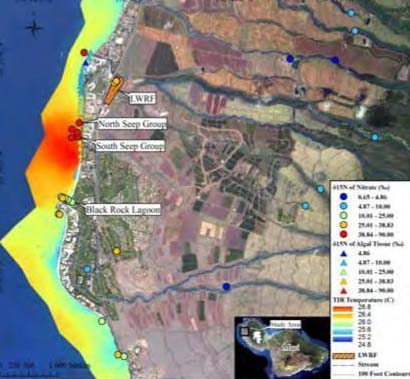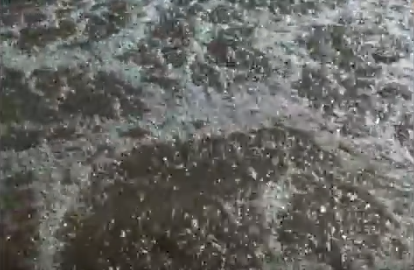DIRE is considering options, may appeal to Circuit Court
April 29, 2010
The Maui Planning Commission voted 5-1 to uphold Planning Director Jeff Hunt’s determination that the Division of Wastewater Management is exempt from having to obtain a special management area permit to build two replacement injection wells at the Kahului wastewater treatment plant.
Commissioner Warren Shibuya voted not to uphold but the five favorable votescast by Commissioners Kent Hiranaga, Jack Freitas, Orlando Tagorda, Ward Mardfin and Lori Sablas prevailed. Commission Chairman Jonathan Starr did not cast a vote.
Irene Bowie, executive director of Maui Tomorrow, the sponsor of DIRE, said Wednesday: “Clearly we are disappointed in the verdict, and we feel the commission misunderstood points of the law that need to be looked at.”
She referred to state and federal laws that, DIRE argued, would require an environmental assessment and public input.
The county argued that since the replacements are to substitute for existing wells, no development of the plant is involved and that maintenance, including repair and replacement, is specifically listed in county regulations for granting exemptions in the coastal management zone.
DIRE (Don’t Inject, Redirect) said it appealed Hunt’s decision reluctantly and probably would not have done so if it could have had a sit-down with wastewater management to pitch its vision of a better way of handling treated effluent.
“We still would like to have a discussion about the positive moves to provide an R1 line so less nitrogen goes into the ocean,” she said.
“R1” is the highest treatment level for wastewater. The reclaimed water, several million gallons a day, could be used to irrigate landscaping or crops, although not much is used that way.
In testimony, Wastewater Division Chief Dave Taylor claimed two barriers to more use of reclaimed water are location and the weather. The plant, on the shore near the airport, is a couple miles from any potential large consumer, which he claims would require a multimillion-dollar pipeline to service; and big customers for reclaimed water typically want a regular supply. DIRE disagrees with this assessment.
Because the plant handles much more inflow of raw sewage in the rainy winter than in dry summer, its output of treated water varies by a factor of two. Even if the county could sell all the reclaimed water the plant produces on a rainless day, it still would need injection wells to dispose of the surplus during rainy weeks. Otherwise, the surplus would run into the ocean.
DIRE pointed out that it is illegal to allow rainwater into the sanitary lines so the above statement indicates that the County is in violation of EPA rules.
Tuesday’s commission action marked the first time the panel had sat as a appeal board on a director’s decision.


